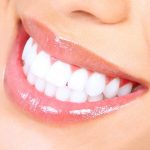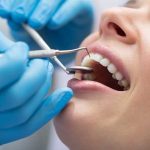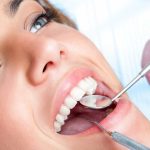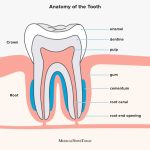5 Common Reasons for Teeth Chipping: A Guide to Protecting Your Smile
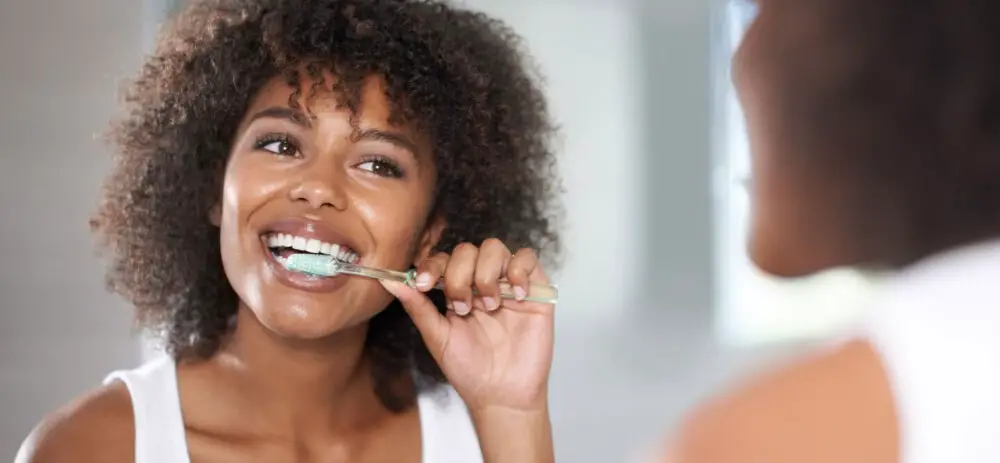
Your teeth are an essential part of your body, and they play a crucial role in your overall health and well-being. Not only do they help you chew and digest food, but they also contribute significantly to your facial aesthetics, speech, and self-confidence. However, despite their strength and durability, teeth are not indestructible, and they can chip or break under certain circumstances. If you’re like most people, you may have experienced teeth chipping at some point in your life, and you know how uncomfortable and unsightly it can be. Fortunately, with some knowledge and preventive measures, you can protect your smile from chipping and keep your teeth healthy and beautiful for years to come. In this guide, we’ll explore five common reasons why teeth chip and what you can do to prevent them. From accidental trauma to poor dental hygiene, we’ll cover the main culprits behind chipping and provide practical tips to minimize the risk. Additionally, we’ll discuss the different types of chips and their severity levels, so you can understand the potential consequences of neglecting your oral health. Whether you’re looking to improve your smile or avoid painful dental emergencies, this guide will give you the insights and tools you need to keep your teeth strong and intact.
Teeth chipping refers to the damage that occurs on the enamel of the tooth, leading to a portion of the tooth breaking off. It can occur due to various factors, including accidents or trauma to the face, grinding or clenching of teeth, biting down on hard objects or foods, and poor dental hygiene. Teeth chipping can result in pain, sensitivity, and difficulty in chewing, and if not treated promptly, can lead to further dental complications. It is crucial to take preventative measures, such as wearing a mouthguard during physical activities, avoiding hard foods, and practicing good oral hygiene to protect your teeth from chipping.
Protecting teeth from chipping is crucial for maintaining optimal oral health and preventing potential dental problems. Chipped teeth can be caused by several factors, including dental trauma, teeth grinding, and poor oral hygiene. When teeth are chipped, they become more susceptible to tooth decay, gum disease, and infection. Additionally, chipped teeth can cause discomfort, difficulty eating and speaking, and aesthetic concerns. Therefore, it is essential to prioritize dental care and take preventative measures to protect your teeth from chipping. This includes practicing good oral hygiene, wearing a mouthguard during physical activities, avoiding chewing on hard objects, and seeking professional dental treatment for any dental issues. By taking these steps, individuals can preserve their teeth’s strength and integrity, ensuring a healthy and beautiful smile for years to come.
Accidents and Trauma
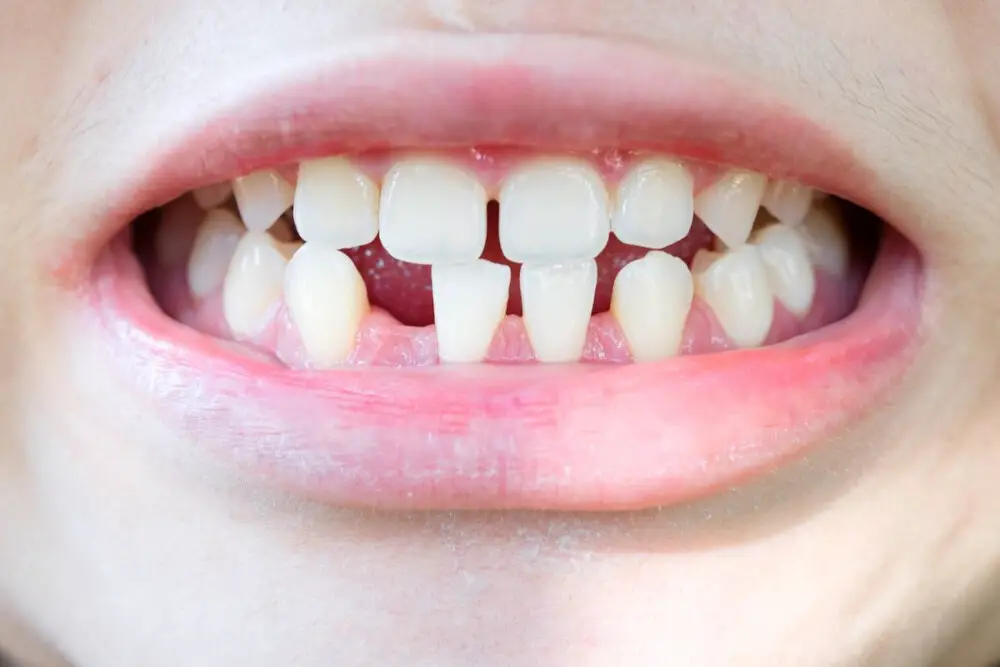
Accidents and trauma are one of the most common reasons for teeth chipping. Whether you’re playing a high-impact sport or simply taking a fall, accidents can happen at any time and can cause significant damage to your teeth. Additionally, trauma caused by grinding or clenching your teeth can also lead to chipping. This is because the constant pressure on your teeth can weaken the enamel and cause it to chip or crack over time. If you’re prone to accidents or grind your teeth, it’s important to take steps to protect your teeth, such as wearing a mouthguard or getting treatment for teeth grinding. In some cases, accidents and trauma can cause more than just chipped teeth. They can also lead to other dental issues, such as fractures, dislocation, or even tooth loss. If you experience any of these symptoms, it’s important to see a dentist as soon as possible. Your dentist can assess the damage and recommend the best course of action to restore your smile. In many cases, dental bonding or veneers can be used to repair chipped or cracked teeth, while dental implants or bridges may be necessary to replace missing teeth.
Accidents are a common cause of teeth chipping, and can often happen unexpectedly. A sudden impact to the face, such as from a fall or a sports injury, can cause the teeth to chip or even break entirely. This can be especially common in children and adolescents who are still growing and developing, as their teeth may not be fully formed or as strong as adult teeth. Additionally, biting down on hard objects such as ice, hard candy, or pens can also cause teeth to chip over time. To prevent teeth chipping due to accidents, it is important to wear protective gear during physical activities and to avoid using your teeth as tools for opening packages or biting hard objects.
Teeth chipping is a common dental issue that can happen due to various reasons, including accidents. For example, a fall or a sports-related injury can cause a chip in the teeth. Biting down on hard objects such as ice, popcorn kernels, or hard candy can also lead to chipped teeth. Grinding or clenching teeth, often during sleep, can put excessive pressure on the teeth and cause them to chip. Additionally, car accidents or other instances of facial trauma can result in chipped teeth. It is essential to take preventive measures to protect your teeth from such incidents and seek dental treatment if you experience any chips or cracks in your teeth.
Preventing accidents that lead to teeth chipping is crucial in maintaining a healthy and beautiful smile. One essential tip is to wear a mouthguard while playing contact sports or engaging in activities that involve flying objects. Another way to minimize the risk of chipping is by avoiding biting hard objects such as ice, popcorn kernels, and pens. Maintaining good oral hygiene by brushing twice a day and flossing regularly also helps to strengthen teeth and prevent decay, which could lead to chipping. It’s also essential to visit a dentist regularly for checkups and to treat any underlying dental issues. Lastly, if you have a habit of grinding or clenching your teeth, especially at night, consider wearing a nightguard to protect your teeth from damage. By following these prevention tips, you can reduce the risk of teeth chipping and maintain a healthy and attractive smile.
Bruxism (Teeth Grinding)
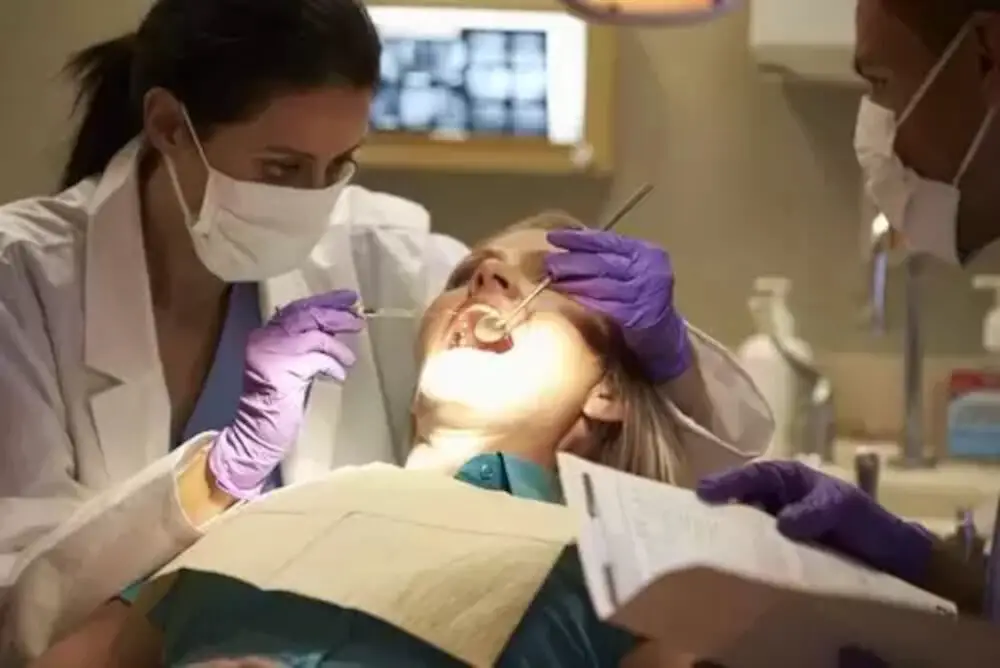
Bruxism, commonly known as teeth grinding, is a condition where people grind or clench their teeth unconsciously. It is a common habit that often occurs during sleep, but it can also happen during the day. Bruxism can lead to severe damage to teeth, which includes chipping, cracking, and wearing of the teeth. It can also cause headaches, earaches, and jaw pain. Several factors can contribute to bruxism, such as stress, anxiety, and sleep disorders. In some cases, medications and medical conditions can also lead to teeth grinding. If left untreated, Bruxism can cause severe dental damage and lead to tooth loss. If you suspect that you grind your teeth, it is crucial to seek medical attention. Your dentist may suggest wearing a mouthguard while you sleep to protect your teeth from further damage. Additionally, managing stress and anxiety can help reduce the frequency of bruxism episodes. Relaxation techniques, such as yoga and meditation, can help alleviate stress and promote relaxation. Consulting with a sleep specialist can also help identify underlying sleep disorders that may be contributing to teeth grinding. By addressing the underlying cause of bruxism and managing its symptoms, you can protect your teeth and maintain a healthy, beautiful smile.
Bruxism is a condition characterized by the grinding and clenching of teeth, often unconsciously, during sleep or while awake. It can lead to significant damage to teeth over time, including chipping and cracking, as well as jaw pain and headaches. While the precise cause of bruxism is not always clear, it can be triggered by stress, anxiety, and sleep disorders. Treatment options can include the use of a mouthguard to protect teeth, relaxation techniques to reduce stress and tension, and medication in severe cases. Early diagnosis and intervention are critical to preventing further damage to teeth and improving overall oral health.
Bruxism, also known as teeth grinding or clenching, is a common condition that can lead to dental problems such as teeth chipping. When a person grinds or clenches their teeth, excessive force is placed on the teeth, which can cause them to weaken and eventually chip or break. Bruxism can be caused by a variety of factors, including stress, anxiety, and certain medications. It is important to treat bruxism as soon as possible to prevent further damage to the teeth. Treatment options include wearing a mouthguard at night, relaxation techniques, and addressing underlying causes such as stress or anxiety. By taking steps to manage bruxism, individuals can protect their teeth from chipping and maintain a healthy smile.
Bruxism, the grinding or clenching of teeth, can be a significant contributor to teeth chipping. To reduce the risk of chipping, prevention and treatment options are available. Prevention includes stress management techniques, avoiding hard or chewy foods, and reducing caffeine and alcohol intake. A custom-fitted mouthguard can also be worn at night to protect the teeth. Treatment options may include dental adjustments to correct misaligned teeth, muscle relaxants, and therapy to retrain the jaw muscles. In severe cases, surgery may be necessary. By taking preventative measures and seeking treatment, individuals can reduce their risk of teeth chipping due to bruxism.
Poor Oral Hygiene
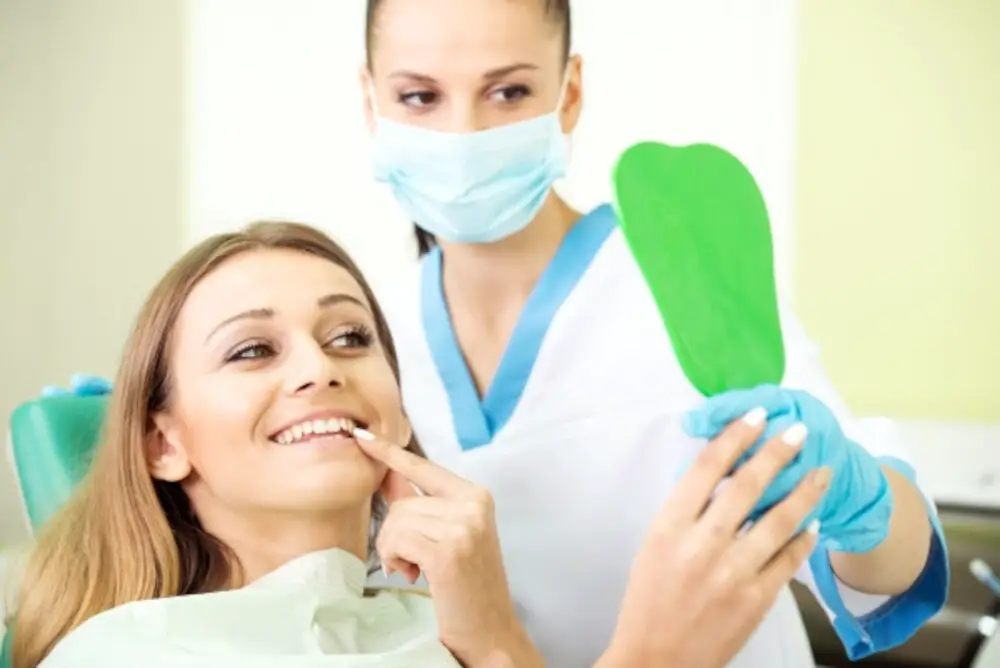
Poor oral hygiene is one of the most common reasons for teeth chipping. Neglecting your oral health can lead to the buildup of bacteria and plaque, which can erode the enamel of your teeth and make them more susceptible to damage. Poor oral hygiene can also lead to gum disease, which can cause your gums to recede and expose the roots of your teeth, making them more prone to chipping and cracking. To avoid these issues, it’s essential to practice good oral hygiene habits, such as brushing twice a day, flossing daily, and visiting your dentist for regular checkups and cleanings. If you’re not taking care of your teeth and gums, you’re putting yourself at risk for a variety of dental problems, including chipped teeth. Poor oral hygiene can also lead to cavities, tooth decay, and bad breath, so it’s essential to prioritize your oral health. By brushing and flossing regularly and visiting your dentist for routine exams, you can prevent these issues and keep your teeth healthy and strong. Remember, prevention is always better than cure, and taking care of your teeth and gums is an investment in your overall health and well-being.
Poor oral hygiene can cause teeth to chip due to the buildup of plaque and tartar. When bacteria in the mouth combine with food particles, they produce acid that erodes tooth enamel. Over time, this weakens the teeth, making them more susceptible to damage. Additionally, neglecting regular dental check-ups and cleanings can allow small cavities to go unnoticed, ultimately leading to larger and more severe damage to the tooth structure. Inadequate brushing and flossing can also cause gum disease, which can further weaken the teeth and lead to chipping or breaking. Therefore, it is essential to maintain good dental hygiene practices to prevent teeth chipping and maintain a healthy and beautiful smile.
Poor oral hygiene habits can have a significant impact on the health of your teeth, and chipping is just one of the many issues that can arise. One of the most common causes of chipped teeth is grinding or clenching, which can wear down the enamel and cause chips or fractures. Another factor is consuming hard or crunchy foods, which can place excessive force on the teeth and weaken them over time. Poor brushing and flossing habits can also contribute to chipping, as plaque and tartar buildup can erode the teeth and make them more prone to damage. Finally, using your teeth as tools, such as opening bottles or tearing packaging, can also cause chips or cracks and should be avoided. By practicing good oral hygiene and avoiding these common habits, you can help protect your teeth from chipping and other forms of damage.
Chipping teeth can be a painful and costly experience. Fortunately, there are a few things you can do to help prevent chipping and keep your teeth healthy. First and foremost, maintaining good oral hygiene is key. This means brushing twice a day, flossing daily, and using mouthwash regularly. Avoiding hard or crunchy foods and chewing on ice can also help prevent chipping. Wearing a mouthguard while playing sports or engaging in other physical activities can provide an extra layer of protection. Finally, seeing your dentist regularly for cleanings and check-ups can help catch any potential issues before they become bigger problems. By following these simple prevention tips, you can keep your teeth healthy and avoid the pain and expense of chipping.
Consuming Hard Foods and Objects
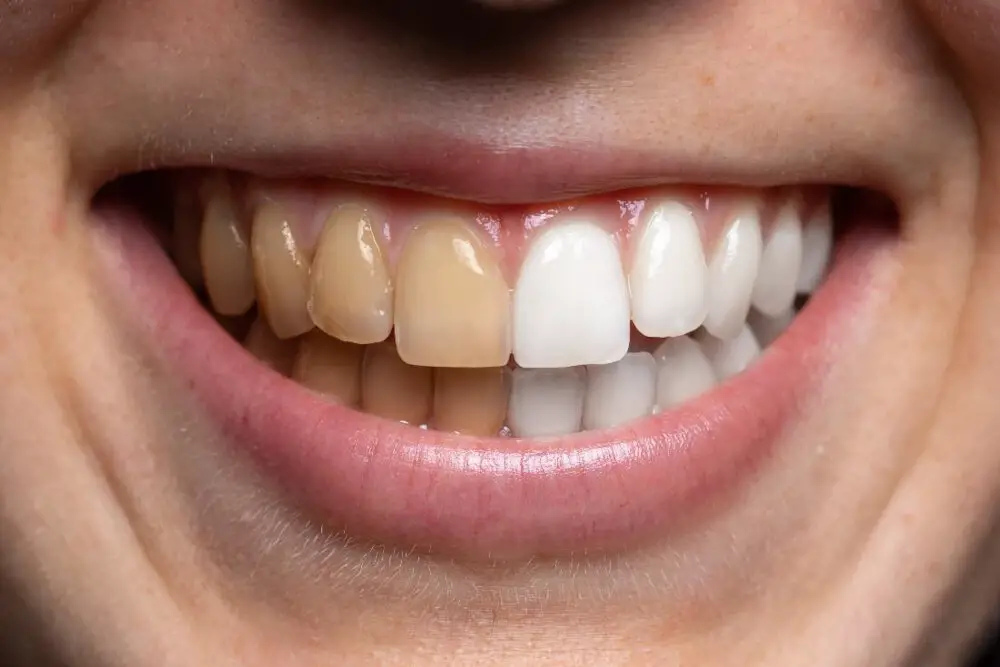
Consuming hard foods and objects is one of the most common reasons for teeth chipping. Many people like to crunch on ice, hard candy, and popcorn kernels, but these foods can be extremely damaging to your teeth. The pressure and force required to break down these hard substances can easily cause your teeth to crack or chip. Moreover, biting down on hard objects like pens, pencils, and bottle caps can also lead to tooth damage. It is important to be mindful of what you are putting in your mouth and avoid consuming anything that may cause harm to your teeth. To prevent teeth chipping due to consuming hard foods and objects, it is recommended to swap out these items for healthier alternatives. For instance, instead of munching on popcorn kernels, try snacking on sliced apples or carrots. Additionally, chewing sugarless gum can also help reduce the urge to bite down on hard items. If you must consume hard items, try to break them down into smaller, more manageable pieces before chewing them. By being cautious and mindful of what you put in your mouth, you can significantly reduce the likelihood of chipping your teeth and protect your smile for years to come.
Teeth chipping is an often unpleasant and painful experience that can be caused by a variety of factors. Among the most common reasons for chipped teeth is the consumption of hard foods and objects. Hard foods such as ice, popcorn kernels, and hard candies can cause teeth to crack or chip, while non-food items such as pens, pencils, and bottle caps can also be culprits. This is because when the teeth are subjected to excessive force or pressure, they may become weakened or fractured, leading to chips or breaks. Over time, repeated exposure to hard foods and objects can also wear down tooth enamel, making teeth more susceptible to damage. To prevent teeth chipping, it is important to avoid biting down on hard objects and to take care when eating hard foods.
Teeth chipping is a common dental problem that can happen to anyone, regardless of age or gender. One of the most significant reasons for teeth chipping is hard foods and objects. Foods like popcorn kernels, ice cubes, and hard candy can cause significant damage to your teeth when you bite down on them. Similarly, objects like pens, pencils, and bottle caps can also cause teeth chipping if you accidentally bite down on them. Other examples of hard foods and objects that can cause teeth chipping include nutshells, bones, and even some types of fruit like apples. It’s essential to be mindful of what you’re putting in your mouth to protect your teeth from chipping and other dental problems.
Preventing teeth chipping caused by hard foods and objects is a matter of being mindful of what you’re eating and how you’re using your teeth. Avoid biting down on hard candies, ice, or popcorn kernels, as these can easily crack or chip teeth. Instead, opt for softer foods like fruits, vegetables, and cooked meats. Additionally, avoid using your teeth as tools to open packages or bottles, and avoid chewing on pens or pencils. Wearing a mouthguard during physical activities like sports can also reduce the risk of chipping or breaking teeth due to impact. By taking these prevention tips into consideration, you can help protect your smile from the damage caused by hard foods and objects.
Teeth chipping is a common dental problem that can occur due to various reasons. One of the most common causes of teeth chipping is teeth grinding or clenching, which can be caused by stress or anxiety. Another reason for chipping teeth is biting down on hard objects such as ice, hard candy, or pens. Poor dental hygiene can also lead to teeth chipping, as bacteria and plaque build-up can weaken the tooth enamel. Trauma to the face or mouth, such as a fall or sports injury, can also cause teeth to chip. Finally, age-related wear and tear can cause teeth to become brittle and more susceptible to chipping. Protecting your smile requires taking preventative measures such as wearing a mouthguard during sports, maintaining good dental hygiene, and avoiding bad habits such as teeth grinding and biting down on hard objects.
Protecting your teeth from chipping is crucial to maintaining a healthy and beautiful smile. Chipped teeth not only affect the appearance of your teeth, but they can also lead to pain, sensitivity and difficulty eating. Moreover, chipping can compromise the structural integrity of your teeth, allowing bacteria to penetrate deeper into the tooth and causing decay. Dental procedures to repair chipped teeth can also be costly and time-consuming. By taking preventive measures such as wearing a mouthguard during sports, avoiding hard and crunchy foods, and practicing good dental hygiene, you can significantly reduce the risk of chipping and maintain a healthy smile for years to come.
In conclusion, maintaining good oral health is crucial in preventing teeth chipping and preserving your beautiful smile. Brushing your teeth twice a day, flossing daily, and using mouthwash can help remove plaque and bacteria that can weaken your teeth. Avoid biting hard objects like ice, popcorn kernels, and hard candies, and wear a mouthguard while playing sports or engaging in activities that may cause trauma to your mouth. Regular dental check-ups are also essential to identify any potential issues early on and treat them before they worsen. By adopting these simple tips, you can maintain good oral health and protect your smile for years to come.
Conclusion
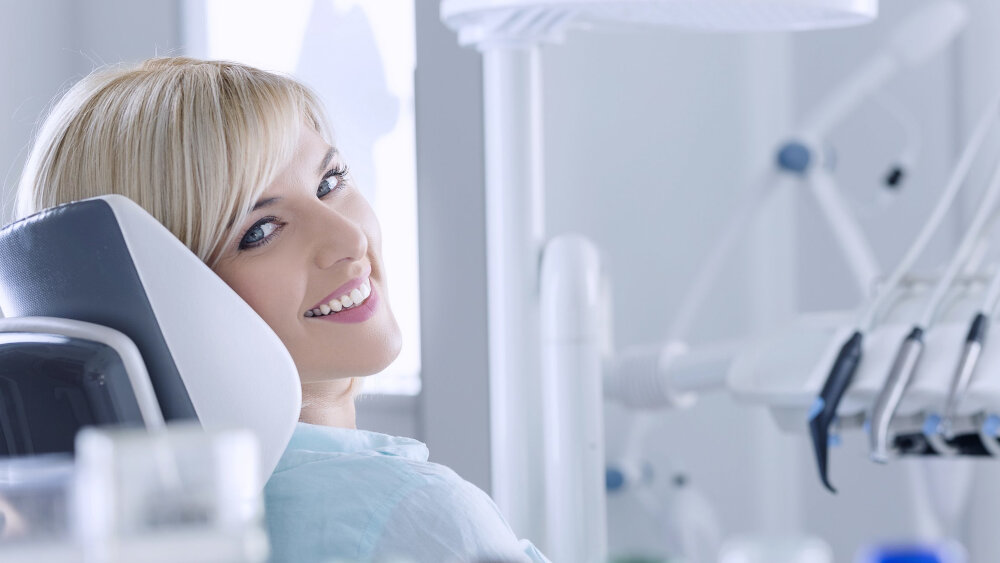
In conclusion, chipped teeth can be a painful and unsightly problem, but thankfully, there are many ways to protect your smile from damage. By being mindful of the common causes of chipping, such as grinding, biting hard objects, and using your teeth as tools, you can take steps to prevent damage before it occurs. Additionally, maintaining good oral hygiene and visiting your dentist regularly can help you catch and treat any issues before they lead to more serious damage. With these tips in mind, you can keep your smile healthy and bright for years to come. Remember, prevention is key when it comes to protecting your teeth from chips and other damage, so be proactive and take care of your teeth every day.


